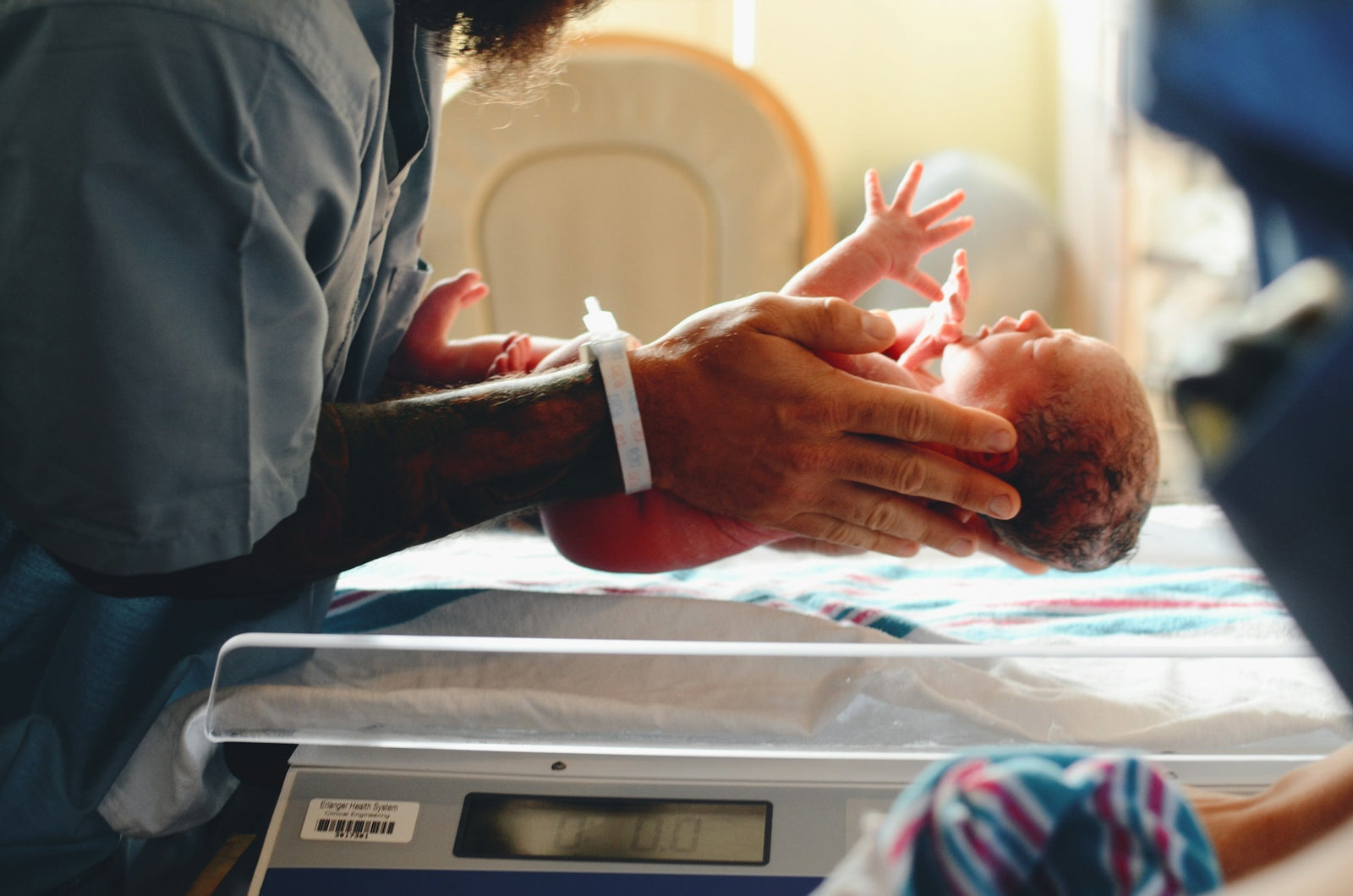Your Cart is Empty
Gift Sets
Categories

Newborn Skincare 101: 10 Gentle Practices for Baby's Delicate Skin
by Adrian Ma March 14, 2024 4 min read
Your newborn’s delicate skin requires special attention and care to prevent irritations and ensure its overall health. As a parent, it's essential to understand and implement gentle practices for newborn skincare, particularly for little ones with sensitive skin conditions such as eczema. From cleansing routines to clothing choices, every aspect plays a role in maintaining your baby's skin's comfort.
In this newborn skincare guide, we will explore ten gentle practices to nurture and protect your baby's delicate skin, providing the best possible care from day one. The Wee Bean, a children's brand specialising in organic apparel and gifts for little ones with sensitive skin and eczema, is dedicated to offering safe and gentle products, keeping your baby's delicate skin at the forefront of our mission.
1. Keep Bath Times Brief and Infrequent
Newborns don't require daily baths, as frequent bathing can strip away their skin's natural oils and lead to dryness. During their first month, you can give your baby a sponge bath two to three times a week using lukewarm water and a soft, clean cloth.
Once the umbilical cord stump has fallen off, you can start giving gentle baths in a baby tub. Keep bath times short—no more than 10 minutes—to prevent overexposure to water and potential skin irritation.
2. Use Delicate, Fragrance-Free Products
Choose mild, fragrance-free baby cleansers, shampoos, and moisturisers specifically formulated for newborns' sensitive skin.
Avoid harsh soaps and products containing synthetic fragrances, which can cause irritation and allergic reactions. Opt for pH-balanced, hypoallergenic formulas that are safe for everyday use on your baby's skin.
3. Pat Dry, Don't Rub
After bathing your baby, gently pat their skin dry with a soft, absorbent towel, avoiding harsh rubbing or pulling motions that can cause irritation.
Pay special attention to skin folds and creases, as moisture can accumulate in these areas, leading to rashes and chafing.
4. Moisturise Regularly
Some newborns may experience dry, flaky skin, which can be alleviated by using a gentle, hypoallergenic, fragrance-free moisturiser specifically designed for babies.
Apply a small amount of moisturiser to your baby's skin immediately after bathing to lock in moisture and keep their skin hydrated and soft. For babies with eczema, regular moisturising is crucial in managing their condition and preventing flare-ups.
5. Practice Diaper Care and Hygiene
Diapers should be changed frequently—at least every two to three hours—to minimise the risk of diaper rash. Gently clean the diaper area with mild, fragrance-free baby wipes or a soft cloth dampened with water.
Allow the area to air dry before applying diaper cream or ointment and securing the new diaper. Providing some diaper-free time each day can also help prevent diaper rash and give your baby's skin a chance to breathe.
6. Protect from the Sun
Newborns' skin is highly sensitive to the sun; it's crucial to keep them shielded from direct sunlight. The American Academy of Paediatrics recommends keeping babies under six months old out of direct sun exposure, using physical barriers like umbrellas, hats, and lightweight, protective clothing.
Additionally, seek shade whenever possible and avoid peak sun hours (10 am – 4 pm) to minimise your baby's risk of sunburn.
7. Choose Soft, Organic Clothing
Selecting soft, organic fabrics for your newborn's clothing can significantly impact their skin's comfort and health. Organic materials like cotton, bamboo, and Tencel™ Lyocell are free of harsh chemicals and pesticides, making them gentle on your baby's sensitive skin.
The Wee Bean offers a range of organic clothing items specifically designed for little ones with sensitive skin and eczema.
8. Launder Baby Clothes with Care
Before dressing your newborn in new clothing, make sure to wash the garments thoroughly with a gentle, fragrance-free detergent. This eliminates any residual chemicals or irritants that may be present on the fabric.
Avoid using fabric softeners or dryer sheets, as they can leave residue and fragrances on clothing, potentially irritating your baby's skin.
9. Monitor Your Baby's Skin for Changes
Regularly inspect your baby's skin for changes, such as rashes, redness, or dry patches. If you notice any unusual symptoms or your baby seems uncomfortable, consult your paediatrician for advice. They may recommend additional care practices or products to help alleviate your baby's discomfort and promote healthy skin.
10. Understand and Manage Eczema
For babies suffering from eczema, maintaining a consistent skincare routine is critical. Work closely with your paediatrician or dermatologist to develop an individualised care plan to manage your baby's eczema.
This may include using specially formulated cleansers and moisturisers, applying topical medications, and avoiding potential triggers like allergens or irritants in your baby's environment.
A Loving Touch: Embracing Gentle Care for Your Baby's Skin
Caring for your newborn's delicate skin involves understanding their unique needs and implementing gentle, informed practices. By following these ten gentle tips, you can create an effective skincare routine that ensures your baby's well-being and comfort. As parents, let's embrace our responsibility to protect and nurture our little ones' precious skin, providing them with the best possible start in life.
The Wee Bean is dedicated to supporting you and your baby with our line of organic baby apparel and gifts designed specifically for little ones with sensitive skin and eczema. Let our products be a part of your baby's daily care and comfort – because every loving touch counts. Explore The Wee Bean today and take the first step towards a healthier, happier future for your baby.
Leave a comment
Comments will be approved before showing up.
Also in Latest Blog Posts

Navigating Holiday Travel with a Baby: Your Complete Guide to a Stress-Free, Joy-Filled Journey
by Adrian Ma December 09, 2025 6 min read
Holiday travel with a baby can feel like stepping into a live reality show, one part adventure, one part uncertainty, and a whole lot of planning. Whether you’re hopping on a long-haul flight to see family or doing a quick getaway to recharge, traveling with little ones during peak holiday season doesn’t have to turn into chao
Recently viewed products
Sign up to get 15% OFF your first order
Sign up to get the latest on sales, new releases and more …


